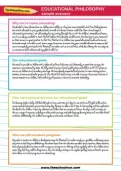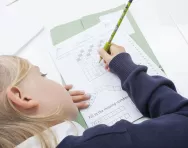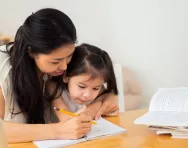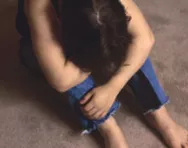Important update from TheSchoolRun
For the past 13 years, TheSchoolRun has been run by a small team of mums working from home, dedicated to providing quality educational resources to primary school parents. Unfortunately, rising supplier costs and falling revenue have made it impossible for us to continue operating, and we’ve had to make the difficult decision to close. The good news: We’ve arranged for another educational provider to take over many of our resources. These will be hosted on a new portal, where the content will be updated and expanded to support your child’s learning.
What this means for subscribers:
- Your subscription is still active, and for now, you can keep using the website as normal — just log in with your usual details to access all our articles and resources*.
- In a few months, all resources will move to the new portal. You’ll continue to have access there until your subscription ends. We’ll send you full details nearer the time.
- As a thank you for your support, we’ll also be sending you 16 primary school eBooks (worth £108.84) to download and keep.
A few changes to be aware of:
- The Learning Journey weekly email has ended, but your child’s plan will still be updated on your dashboard each Monday. Just log in to see the recommended worksheets.
- The 11+ weekly emails have now ended. We sent you all the remaining emails in the series at the end of March — please check your inbox (and spam folder) if you haven’t seen them. You can also follow the full programme here: 11+ Learning Journey.
If you have any questions, please contact us at [email protected]. Thank you for being part of our journey it’s been a privilege to support your family’s learning.
*If you need to reset your password, it will still work as usual. Please check your spam folder if the reset email doesn’t appear in your inbox.
The legalities of home education in the UK

Deciding to home educate is every parent's right, but taking the plunge can be daunting and many families worry about falling foul of the law. We explain the legalities of home education in the UK.
Do I need permission to home educate in the UK?
Not in England or Wales, according to the Department for Education. Whether your child currently attends a private or state school, you simply need to write to your child’s head teacher to let them know you are withdrawing your child’s name from the register and they will let the local authority know.


Free home education planning pack & resources
- Guidance, templates and advice to get you started
- Practical tips from experts and parents
- How to establish a routine and set learning goals
In Scotland and Northern Ireland, you need permission from your local authority, although this can’t be unreasonably witheld.
At what age do children have to be formally educated – even if it is at home?
Between the school term after their fifth birthday and the last Friday in June in the school year they turn 16. After 16, education is optional.
Who do I need to tell and how do I legally withdraw my child from school?
If your child is already at school, you must write to the head teacher to ask for their name to be removed from the register. The head must accept your decision if you're taking your child out of school completely. But they can refuse if you want to send your child to school some of the time and home educate the rest of the time (known as flexi-schooling).
If your child isn’t at school but you have been offered a school place, you must formally remove your child’s name from the register at the school that they're due to start attending. This is usually done through the local authority.
If your child hasn’t started school and you haven’t applied for a place at school, you don't need to do anything.
In each case there is no obligation for you to contact the local education authority although they might contact you to ask what provision you have made for your child’s education once they realise that they're no longer registered at a school.
You can choose to home educate your child at any stage.
What if my child has special educational needs?
If your child attends a special school you will need permission from the local council before their name can be removed from the register: this can't be unreasonably denied, but is intended as an extra check to make sure you're able to cope with your child's needs and can provide them with a suitable education.
If your child has an education, health and care (EHC) plan you must inform the local authority if you're going to home educate.
If your child attends a special unit at a normal school, you don’t need permission to de-register them.
What if I am divorced?
Either parent can home educate a child without the other parent’s consent as long as their name is on the child’s birth certificate. This can be challenged in court, though.
How many hours should I be teaching my child?
Your child must be educated full-time – the law doesn’t specify how many hours but children normally receive formal teaching at school for between 22 and 25 hours a week for 38 weeks of the year. You don't have to stick to a school-style timetable or follow school terms.
What does the law say about what I have to teach?
You don’t have to follow the National Curriculum, but the Education Act says that children have the right to an 'efficient' and 'suitable' full-time education, defined as, 'an education that equips a child for life within the community of which he is a member.' It's up to you to decide how to provide that education: it could be through following the National Curriculum closely, using it as a guide, or letting your child's interests dictate their learning.
Do I need to provide evidence of what my child is learning at home and their progress?
No. If you withdraw your child from school, it's likely your local authority will want to discuss your plans for providing a home education, and although this isn’t a legal requirement, home education support groups advise that you comply with their request. This could be through a home visit or a meeting outside the home, a letter setting out your educational philosophy, or written evidence such as a report, samples of work or verification from an independent home tutor. You are allowed a reasonable time to prepare this.
Do I have to be approved by anyone before I start home educating?
No. Any parent has the right to home educate, whether or not they are a qualified teacher or have any experience.
Do I have to be inspected or monitored?
Not by law unless it appears you aren’t providing a suitable education or the local council is concerned about the welfare of your child. If you’re in Scotland, the local government can suggest annual contact but this isn’t compulsory.
In practice, most local authorities tend to make contact with home educators once a year to see how things are going, but you're not obliged to meet with them either at your home or elsewhere. Many parents update their educational philosophy annually and send this to the home education contact at their local authority to keep them up to date.
Can I get help with financial costs?
No – unless you live in Scotland, in which case you can still claim Education Maintenance Allowance once your child turns 16. Otherwise, you must be prepared to assume full financial responsibility – including paying for public exams should your child sit them.
Depending where you live you might be eligible for practical support such as extra borrowing rights at your local library, free entry or discounts to your nearby leisure centre and access to local school resources.
For more information about the legalities of home education, visit the Department for Education, Education Otherwise or Home Education UK. The full law is set out in Section 7 of the Education Act 1996.








